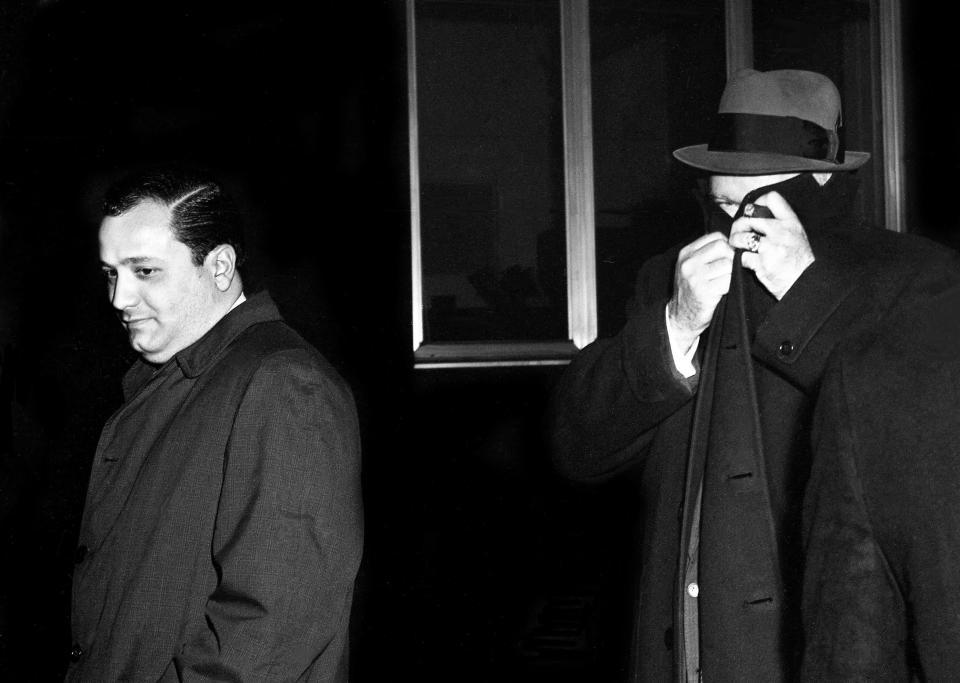Here's what the Constitution's Fifth Amendment says about indictments and double jeopardy
Our Constitution and amendments are the supreme law of America. The first 10 amendments, or Bill of Rights, were submitted to the state legislatures in 1789 and ratified two years later.
We now study the Fifth Amendment. This Amendment says:
“(N)o person shall be held to answer for a capital, or otherwise infamous crime, unless on a presentment or indictment of a Grand Jury, except in cases arising in the land or naval forces, or in the Militia, when in actual service in time of War or public danger; nor shall any person be subject for the same offence (sic) to be twice put in jeopardy of life or limb, nor shall be compelled in any criminal case to be a witness against himself, nor be deprived of life, liberty, or property, without due process of law; nor shall private property be taken for public use without just compensation.”
Entire books and treatises have been written about the Fifth Amendment, which also applies to the states pursuant to the Fourteenth Amendment. The Supreme Court has expanded many. Below are some of the rights provided to all persons in accordance with the Amendment No. 5:
Right to a presentment or indictment by a grand jury for a felony.
Creation of a separate military justice system, for military members (e.g., UCMJ).
Right against double jeopardy in the same jurisdiction, which bars being tried twice in a criminal case for the same offense.
The right not to be compelled to be a witness against oneself in a criminal trial, which is commonly called “taking the Fifth” in everyday language.
The right to be afforded “due process of law” in all criminal and civil proceedings.
The right for “just compensation” or payment when private property is taken for public use.
Understand terms like indictment, true bill and double jeopardy
An indictment is a charge signed by a prosecutor. A presentment is a charge that is taken under consideration by a grand jury, regardless of the prosecutor’s signature. Both have to be approved by the grand jury.

If the grand jury determines “probable cause” by proper vote, it can return what is commonly called a “true bill” of indictment or presentment.
Some criminal acts could be state, federal, or both. The double jeopardy clause in the Fifth Amendment precludes the same state or federal court from trying the defendant twice for the same crime.
There may be cases where both a federal and state crime are involved. An example would be a federally insured (FDIC) bank robbed in a Tennessee city. The defendant could be charged in federal or state court unless a law or regulation prevents it. The state and federal prosecutor usually agree on which jurisdiction handles the case. But double jeopardy does not bar prosecution in the federal and state courts for the same crimes.
The Declaration of Independence set the stage for the Constitution
Our 1776 Declaration of Independence states that people in America “…are endowed by their Creator with certain unalienable Rights, that among those are Life, Liberty and the Pursuit of Happiness….”
That language is the initiation of the concepts of “due process of law” and “just compensation” for private property taken for public use.
Please study our Constitution.
We shall continue with more on the Fifth Amendment. Constitutional study is time well spent. Interpretations are that of the author. We always encourage comments from readers.
Paul G. Summers, a lawyer, is a former appellate and senior judge, district attorney general, and the attorney general of Tennessee. Raised in Fayette County, Judge Summers resides in Nashville and Holladay.
This article originally appeared on Nashville Tennessean: Fifth Amendment prohibits double jeopardy and here's what that means

